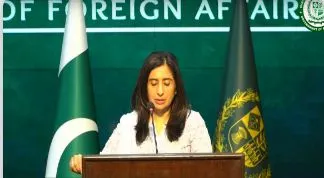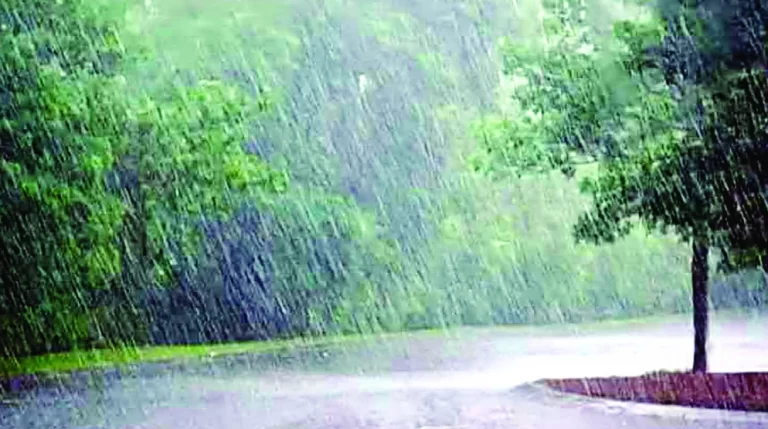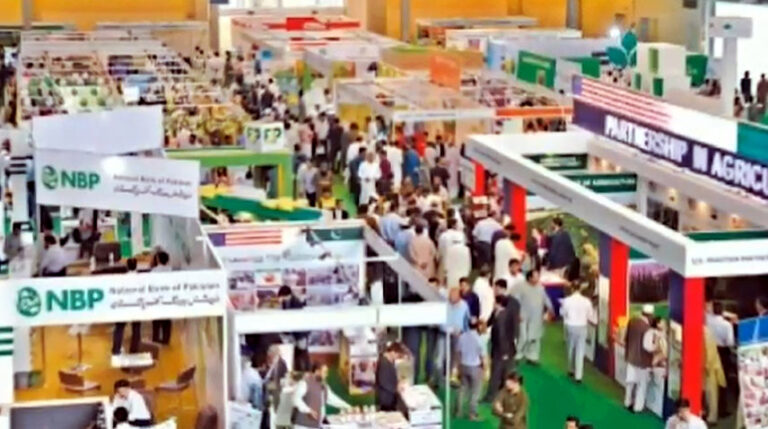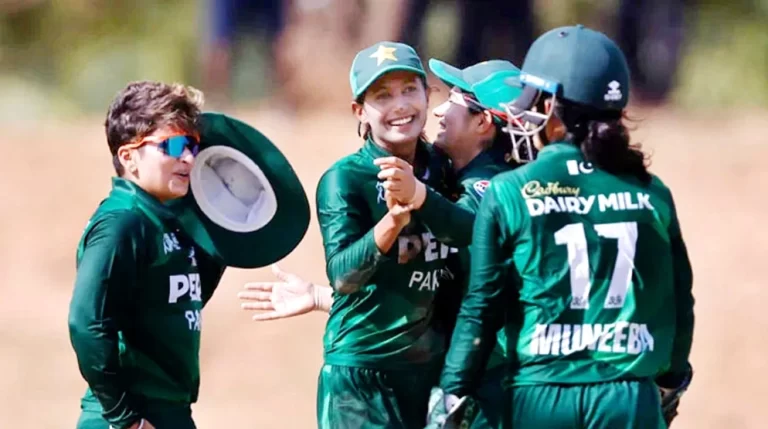Pakistan Rejects US Report on Religious Freedom
ISLAMABAD.
The spokesperson of the Foreign Office has said that Prime Minister of Pakistan, Muhammad Shehbaz Sharif is in Kazakhstan for the twin Summits of SCO Council of Heads of State (CHS) and SCO Plus from 03-04 July 2024 in Astana, Kazakhstan. He is accompanied by Deputy Prime Minister and Foreign Minister Mohammad Ishaq Dar and other senior members of the Cabinet and senior government officials.Pakistan expressed reservations on the resolution of the US Congress
At the SCO Council of Heads of Summit Meeting today, the Prime Minister will share Pakistan’s perspective on important regional and global issues and underline the importance that Pakistan accords to regional connectivity and cooperation with SCO member countries.
The Prime Minister will also address the SCO Plus Summit today that brings together SCO member States and invited Dialogue Partners, Observer States, Guests of the Chair and international organizations. He will share Pakistan’s perspective on important regional and global issues stressing the need for multilateralism and upholding universally recognized principles of international law.
Yesterday, Prime Minister Muhammad Shehbaz Sharif participated in the first Pakistan-Azerbaijan-Türkiye Trilateral Summit on the sidelines of the SCO Summit in Astana, Kazakhstan, along with President Ilham Heydar Aliyev of Azerbaijan and President Recep Tayyip Erdoğan of Türkiye. The three leaders reaffirmed commitment to elevating tripartite cooperation, focusing on areas including trade, energy, tourism, culture, education, technology, healthcare, and environmental cooperation. The Summit follows trilateral consultations at the level of Foreign Ministers, Speakers of Parliaments, and Defence personnel.
The year 2024 is an important milestone for Pakistan-SCO relations, as Pakistan holds the rotating Chairmanship of the SCO Council of Heads of Government (CHG), which is SCO’s second-highest decision-making forum. In this capacity, Pakistan will be hosting the SCO Heads of Governments Meeting in October this year. The October summit will be preceded by a Ministerial meeting and several rounds of Senior Officials meetings, focusing on the financial, economic, socio-cultural and humanitarian cooperation among the SCO member states.
Prior to his visit to Kazakhstan, Prime Minister Muhammad Shehbaz Sharif undertook an official visit to Tajikistan on 2-3 July 2024 at the invitation of President Emomali Rahmon.
In Dushanbe, the Prime Minister held meetings with the President of Tajikistan, Emomali Rahmon; the Chairman of Majlisi namoyandagon, Zokirzoda Mahmadtoir Zoir; and Prime Minister, Qohir Rasulzoda. The meetings focused on strengthening multifaceted cooperation between the two countries including on regional and global issues of mutual concern. The two sides reaffirmed their commitment to deepen bilateral cooperation in diverse areas and signed nine agreements including cooperation between the two Ministries of Foreign Affairs and in the fields of aviation, education, industry, science, sports, tourism, and trade.
The two sides also signed the Pakistan-Tajikistan Strategic Partnership Agreement. The Strategic Partnership will be based on five pillars of bilateral cooperation: political, trade and investment, energy and connectivity, security and defence, and people-to-people contacts. It will include structured high-level dialogue at the leadership and Foreign Ministers’ level.
On 01 July 2024, Pakistan and India exchanged lists of prisoners in each other’s custody in pursuance of the Consular Access Agreement of 2008.
Pakistan handed over a list of 254 Indian or believed-to-be-Indian civilian prisoners and fishermen in Pakistani jails. India shared a list of 452 Pakistani or believed-to-be-Pakistani civilian prisoners and fishermen in Indian jails. A list of 38 missing Pakistani defence personnel, believed to be in India’s custody since the wars of 1965 and 1971, was also handed over by Pakistan.
Pakistan is committed to addressing these humanitarian matters as a matter of priority. Last year, Pakistan released 485 Indian nationals including 06 civil prisoners and 479 fishermen. We will also continue endeavours to ensure the early return of all Pakistani prisoners in Indian jails. As part of these efforts, the repatriation of 62 Pakistani prisoners in 2023, and 04 in 2024, have taken place.
Pakistan’s Special Representative on Afghanistan, Ambassador Asif Ali Khan Durrani, led the Pakistani delegation at the Doha-III meeting of Special Envoys on Afghanistan, held under the UN auspices in Doha from 30 June to 2 July 2024.
Ambassador Durrani presented Pakistan’s perspective on the current situation in Afghanistan. He underscored Pakistan’s support for Afghanistan to alleviate its economic situation and highlighted the threat posed by TTP-led terrorist activities originating from sanctuaries inside Afghanistan.
A bilateral meeting between Pakistan and the Afghan Interim Government was held on 1 July 2024. The two sides exchanged views on key issues of mutual concern, including peace and security. The Pakistani side underscored the need for enhanced efforts to strengthen regional stability and Pakistan’s commitment towards a peaceful, stable and prosperous Afghanistan. Ambassador Durrani also underscored Pakistan’s concerns about terrorist sanctuaries and support networks for terror groups inside Afghanistan.
On the sidelines, Pakistan engaged fruitfully with the delegations of the US, China, Qatar, Russia, Uzbekistan, the EU, the UK, Norway, and the Netherlands. The Pakistan delegation also attended the quadrilateral meeting between Pakistan, Afghanistan, Uzbekistan and Qatar. The meeting discussed areas of mutual concern and cooperation and reviewed the trans-Afghan railway project connecting Pakistan with Uzbekistan via Afghanistan.
The Sixth Round of Bilateral Political Consultations between Pakistan and Belarus was held in Islamabad on 2 July 2024. Additional Foreign Secretary (Europe), Ambassador Shafqat Ali Khan, led the Pakistani side, while the Belarusian side was headed by the First Deputy Foreign Minister, Sergei Lukashevich.
Pakistan categorically rejects the baseless assertions made about Pakistan in the recent report on religious freedom released by the U.S. Department of State.
As a matter of principle, Pakistan opposes such unilateral reports that make observations on the internal affairs of sovereign states.
We believe that International Religious Freedom cannot be viewed from the lens of any single country’s social and legal perspective.
Unilateral reports assessing other countries’ human rights situations are not free from political bias and present an incomplete and distorted picture. The methodology adopted in preparing these reports and the mandate and expertise of its authors are not transparent.
It is unfortunate that the report refers to certain incidents in Pakistan last year without highlighting the strong political will shown by the Government of Pakistan to hold the perpetrators accountable as well as the remedial efforts undertaken and the legal and administrative protections in place for religious minorities.
We strongly believe that each State itself has the primary responsibility to promote and protect the religious rights and freedoms of its nationals. Pakistani citizens are entitled to the freedom of religion and belief under the law and as enshrined in Pakistan’s constitution. These rights and constitutional guarantees are protected, upheld and reinforced by an independent judiciary. Such unilateral reports therefore do not contribute to the promotion of human rights.
The Government of Pakistan has announced to allow medical students from Gaza to complete their medical education in Pakistan.
The decision was made on the directions of Deputy Prime Minister and Foreign Minister Mohammad Ishaq Dar by the Pakistan Medical & Dental Council (PMDC). This would enable Gaza students to continue their medical education in Pakistan on humanitarian grounds.
Palestinian Students from Gaza in batches of 20-30 will soon join medical colleges in Pakistan.
The decision will enable Gaza students to complete their medical education in Pakistan in the fields of cardiology, orthopaedics, oncology, paediatrics and surgery to address the critical needs in Gaza’s health care system.
The Indian authorities’ campaign to crush dissent in the Indian Illegally Occupied Jammu and Kashmir (IIOJK) remains relentless.
A prominent Kashmiri lawyer and former President of the High Court Bar Association, Mian Abdul Qayoom has recently been arrested on fabricated charges. He suffers from multiple chronic ailments and old age. His arrest is a clear act of political vendetta. We urge the Indian authorities to release Mian Abdul Qayoom and thousands of other Kashmiri political prisoners, dissenters and human rights defenders.
Pakistan will continue to extend political, diplomatic and moral support to our Kashmiri brothers and sisters for the just and peaceful settlement of the Jammu and Kashmir dispute in accordance with the UN Security Council Resolutions.








